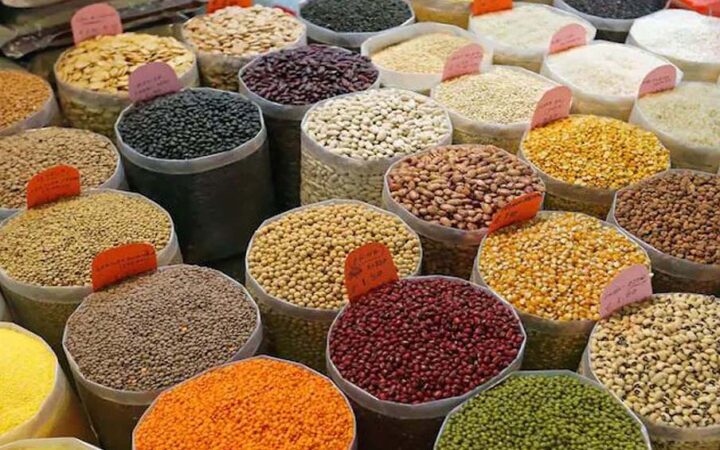India extended the quota free import policy of black gram (urad) and pigeon pea (tur) up to March 2025, the Directorate General of Foreign Trade under the Ministry of Commerce and Industry, Department of Commerce of India notified on 28 December.
Earlier, the free import validity was set until March 2024. India’s extension for the import period is aimed at controlling price rises. Consequently, India’s government allows imports freely without quota.
Previously, India was reportedly to bring in 400,000 tonnes of pigeon pea (tur) and 1 million tonnes of black gram (urad) from Myanmar in two months (Jan-Feb) 2024 to curb rising prices in the domestic market, citing a report by Economic Times.
India is likely to face a decline in pulse output compared to that of the previous year. Subsequently, India is bound to import pulses. India’s government extended the stock limit on pulses to avoid price hikes and have fair prices for the consumers until the end of December 2023 from 30 October.
Additionally, India eased the import tax on pigeon peas in March and raised imports from Africa and Myanmar, still resulting in a price rise compared to those of last year.
As pigeon pea (tur) is commonly consumed across India, with 4.5 million tonnes of annual requirements, Bimal Kothari, chairman of India Pulses and Grains Association stated.
There will be no sudden price increase upon pulses import, Kothari forecast.
India is the major market for Myanmar’s pulses. Myanmar’s commercial attaché in Kolkata, India suggested preparations for consignment of 1.4 million tonnes of those pulses to India in January and February.
The prevailing market prices are K2.96 million per tonne of black gram (urad) and K3.28 million per tonne of pigeon pea (tur).
Myanmar’s black gram and pigeon pea prices are closely tied to India’s demand and the US dollar exchange rate.
Myanmar conveyed 1.1 million tonnes of various pulses worth US$931 million in the past eight and a half months of the current financial year 2023-2024, the Ministry of Commerce stated.
Myanmar mainly exports black gram, green gram, and pigeon peas to foreign markets. Of them, black gram and pigeon peas are primarily shipped to India while green grams are exported to China and Europe.
India has growing consumption requirements for black gram and pigeon peas. According to a Memorandum of Understanding between Myanmar and India signed on 18 June 2021, India will import 250,000 tonnes of black gram and 100,000 tonnes of pigeon peas (tur) from Myanmar for five consecutive years from 2021-2022 financial year to 2025-2026 FY. This G-to-G pact will not affect the pulses’ annual quota set by India. Myanmar’s exporters are also entitled to deliver the pulses to India under that annual quota.
Black gram which India primarily purchases is commonly found only in Myanmar, whereas pigeon pea, green gram, and chickpeas are grown in African countries and Australia, stated by the Myanmar Pulses, Beans, Maize, and Sesame Seeds Merchants Association. — NN/EM
India extends free import policy for black grams, pigeon peas until March 2025
- December 30, 2023
- 348














